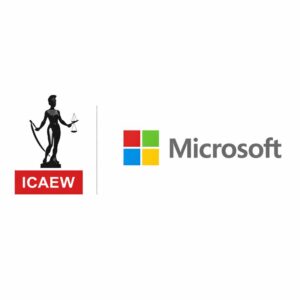Beyond the Ledger: 5 Critical IT Roles in Accounting Firms

Accounting firms are no longer just about ledgers and audits. Technology has become the backbone of modern accounting operations, driving everything from regulatory compliance to client service delivery. Large accounting firms now invest between 5% and 8% of annual revenue in technology infrastructure, according to a 2024 PwC survey. These investments span cybersecurity systems, cloud platforms, enterprise resource planning (ERP) tools, and artificial intelligence capabilities that are reshaping how firms operate.
As technology spending grows, so does the importance of specialized IT roles within accounting firms. These positions are not simply support functions. They are strategic assets that determine whether a firm can compete effectively, protect sensitive client data, and deliver services efficiently. Understanding these critical IT roles and their contributions to firm performance is essential for both accounting professionals and firm leadership seeking to maintain a competitive edge in an increasingly digital landscape.
Chief Information Officer (CIO)
At the top of the IT hierarchy, the CIO sets the strategic technology direction. In large accounting firms like Deloitte and PwC, the CIO manages multi-million-dollar budgets, oversees IT teams, and aligns technology initiatives with business goals. The CIO drives AI adoption across the firm. Deloitte, for example, deployed its AI chatbot, PairD, which automates document analysis in audits, saving employees hundreds of hours annually.
CIOs are also responsible for vendor relationships, cloud migration projects, and the overall cybersecurity posture. According to Robert Half, firms with strong CIO leadership report up to 25% higher operational efficiency compared with firms without centralized IT strategy. The role demands both technical expertise and business acumen, as CIOs must translate complex technology decisions into tangible business value for partners and clients alike.
IT Security Manager
With accounting firms holding highly sensitive client data, IT Security Managers play a critical role. They design security policies, monitor threats, and ensure compliance with GDPR, SOX, and ISO 27001 standards. PwC’s 2024 survey shows that 62% of accounting firms increased their cybersecurity budgets over the past two years, reflecting heightened cyber risk.
Modern IT Security Managers also oversee AI-driven security tools that detect unusual network activity in real time, preventing breaches before they can impact operations. Beyond technology, these managers advise partners on security risks and incident response protocols. In an era where a single data breach can destroy client trust and result in millions in fines, the IT Security Manager serves as the firm’s first line of defense against an increasingly sophisticated threat landscape.
Systems Administrator
Systems Administrators keep the firm’s IT infrastructure operational. They maintain servers, networks, databases, and cloud environments, performing upgrades, monitoring performance, and troubleshooting issues. Gartner reports that downtime in critical financial systems can cost firms up to $5,600 per minute, highlighting the strategic importance of this role.
Today, Systems Administrators increasingly deploy AI-powered monitoring tools that predict system failures, automate routine maintenance, and optimize network performance. Their work ensures that audit software, tax platforms, and financial reporting tools are always available. While often working behind the scenes, Systems Administrators are the unsung heroes who prevent the technical disasters that could derail client deliverables and damage firm reputation.
Financial Systems Analyst
Financial Systems Analysts serve as the bridge between IT and accounting teams. They implement and optimize software systems including ERP, audit platforms, and tax solutions. Analysts ensure these systems comply with regulatory standards while improving workflow efficiency.
With AI integration, analysts now manage tools that automatically reconcile accounts, detect anomalies, and generate predictive insights. Deloitte reports that firms using AI-enhanced financial systems experience up to a 30% reduction in manual processing errors. Financial Systems Analysts are increasingly strategic, shaping the tools that accountants rely on to deliver client services. Their unique combination of accounting knowledge and technical skills makes them invaluable in translating business requirements into technological solutions.
IT Support Specialist
IT Support Specialists provide frontline support to employees. They resolve hardware, software, and network issues quickly to maintain productivity. In accounting firms, rapid troubleshooting is critical, as downtime can delay audits, tax filings, or client deliverables.
IT Support Specialists also train staff on new AI-enabled platforms and ensure smooth adoption of advanced tools. Their work allows accounting professionals to focus on client service, while technology operates seamlessly in the background. Though entry-level compared to other IT roles, Support Specialists are the face of the IT department and play a crucial role in user satisfaction and technology adoption rates.
The AI Transformation
Artificial Intelligence is transforming IT roles at every level. Automation tools handle repetitive data entry, machine learning algorithms flag anomalies in audit data, and predictive analytics inform strategic decisions. For example, EY uses AI to automate large-scale journal entry testing, cutting review time by 50%.
Firms that embrace AI report 20 to 30% productivity gains across audit, tax, and advisory functions. IT professionals must adapt by learning AI system management, data analytics, and advanced security practices. This evolution ensures that firms can leverage AI without compromising compliance or data integrity. The IT professionals who thrive in this environment are those who view AI not as a threat to their roles, but as a tool that elevates their strategic value.
IT Team Structure and Hierarchy
Most accounting firms organize IT teams under the CIO, with specialized managers responsible for security, systems, software, and support. Mid-sized firms often combine responsibilities, while multinational firms have dedicated teams for each function. Clear hierarchies improve accountability, collaboration, and workflow efficiency. Each IT role, from security to support, contributes to operational continuity, client trust, and regulatory compliance.
Career Paths and Compensation
IT roles in accounting firms are not only strategic but increasingly lucrative. According to Robert Half 2024:
- CIOs earn between $150,000 and $250,000 annually
- IT Security Managers average $110,000 to $160,000
- Systems Administrators typically earn $70,000 to $100,000
- Financial Systems Analysts make $85,000 to $120,000, depending on experience
- IT Support Specialists earn $55,000 to $80,000
These roles also offer growth opportunities, from mid-level analyst or administrator positions to executive leadership. For technology professionals considering the accounting sector, these positions offer competitive compensation, job stability, and the chance to work at the intersection of finance and innovation.
Key Takeaways
From maintaining cybersecurity to implementing AI-powered financial systems, these five IT roles are essential to modern accounting firms. CIOs define strategy, IT Security Managers protect assets, Systems Administrators maintain infrastructure, Financial Systems Analysts optimize software, and IT Support Specialists ensure smooth operations.
As AI and automation continue to reshape workflows, these roles are evolving into strategic positions that drive efficiency, compliance, and innovation. Firms that invest in IT talent are not just supporting operations. They are building a competitive advantage in an increasingly digital financial landscape. The accounting firms that will lead tomorrow are those recognizing today that technology isn’t just a support function. It’s a core competency.





